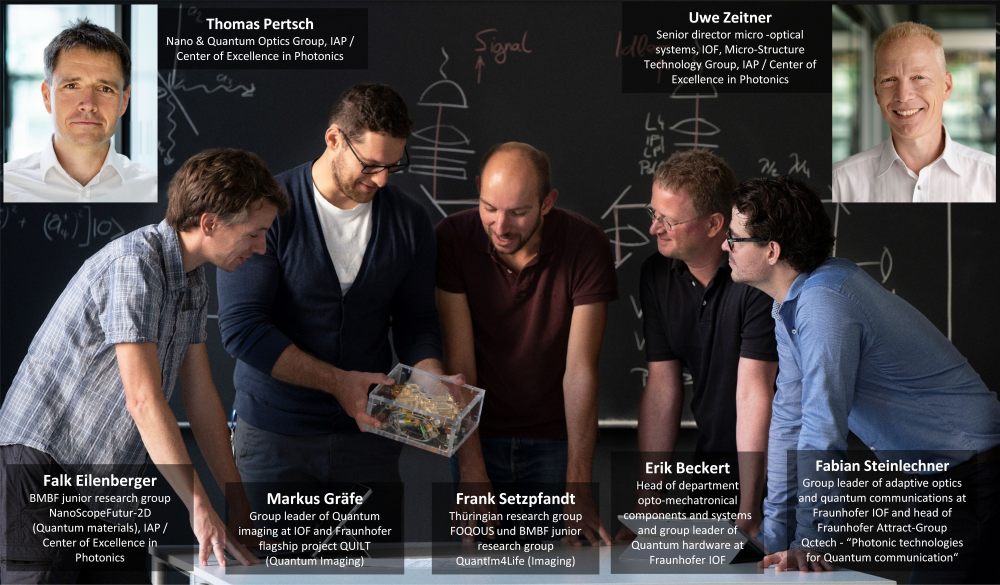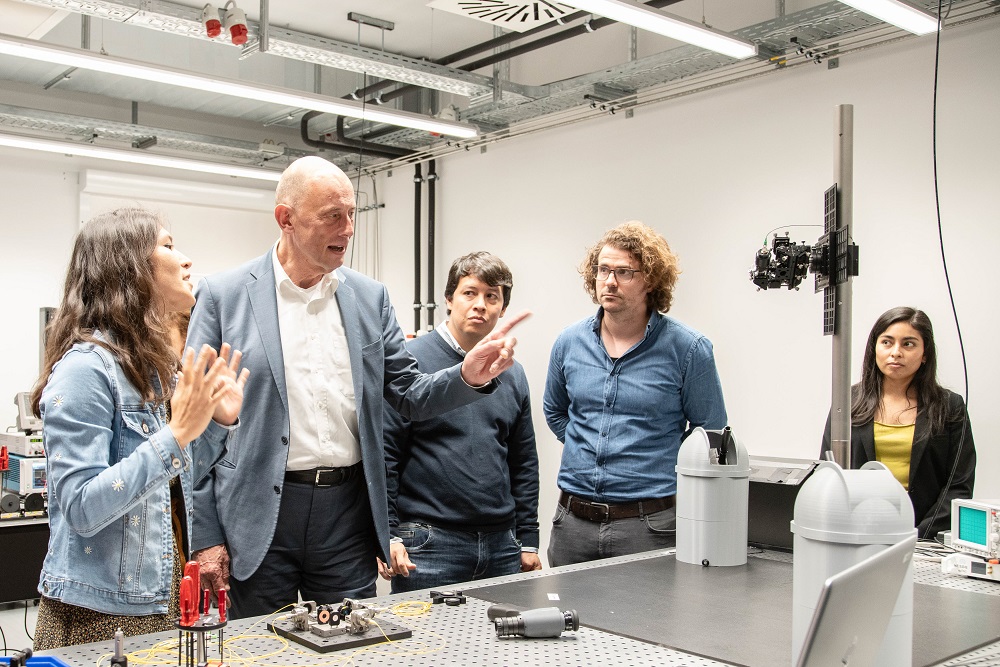
Job offer Fraunhofer IOF:
Scientific Researcher for Quantum Communication Systems
Want to get a closer look at what we’re working on? Visit www.qunet-initiative.de. Got interested? Then do apply:

Job offer Fraunhofer IOF:
Want to get a closer look at what we’re working on? Visit www.qunet-initiative.de. Got interested? Then do apply:
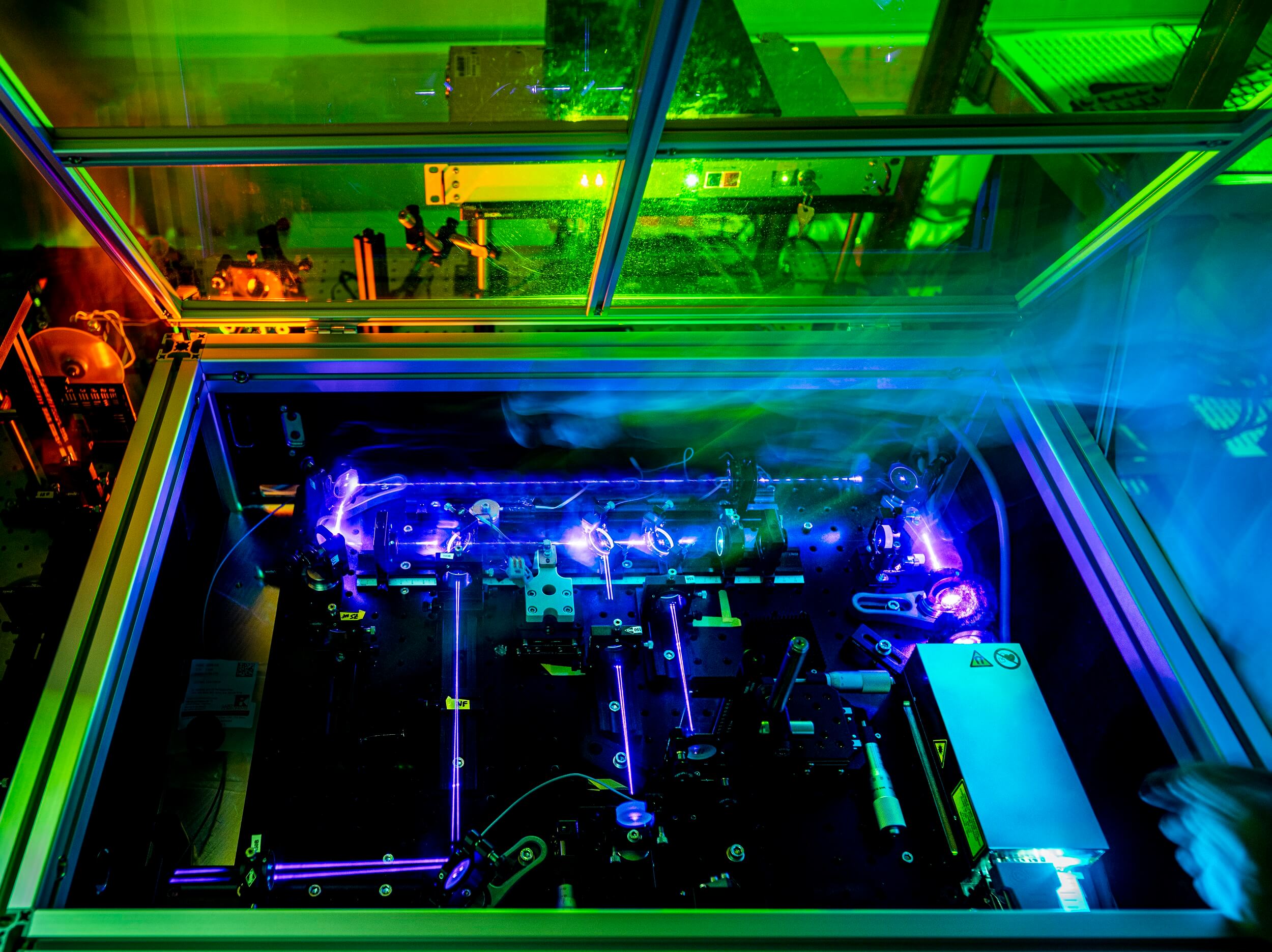
Job offer Fraunhofer IOF:
We are looking for a postdoc for the department »Emerging Technologies« to work on research topics in the field of quantum imaging, in the group led by Dr. Valerio Gili. Got interested? Then do apply:
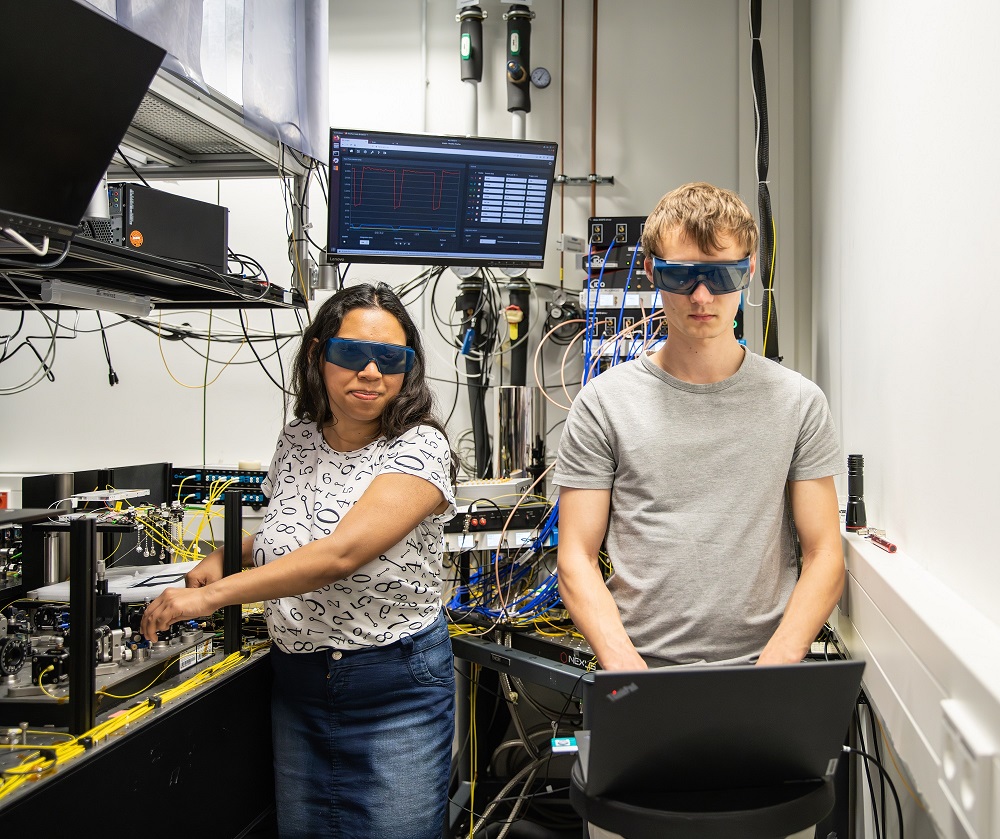
Job offer Fraunhofer IOF:
FIn the department “Emerging Technologies” you will work on versatile research projects in the field of optical quantum technology or active and adaptive optics.. Please click here for further information:
Simply contact our quantum career contact person. We will be happy to support you get in touch with the appropriate persons if you need assistance.
Or check out and contact the principal investigators for your desired quantum topic(s).
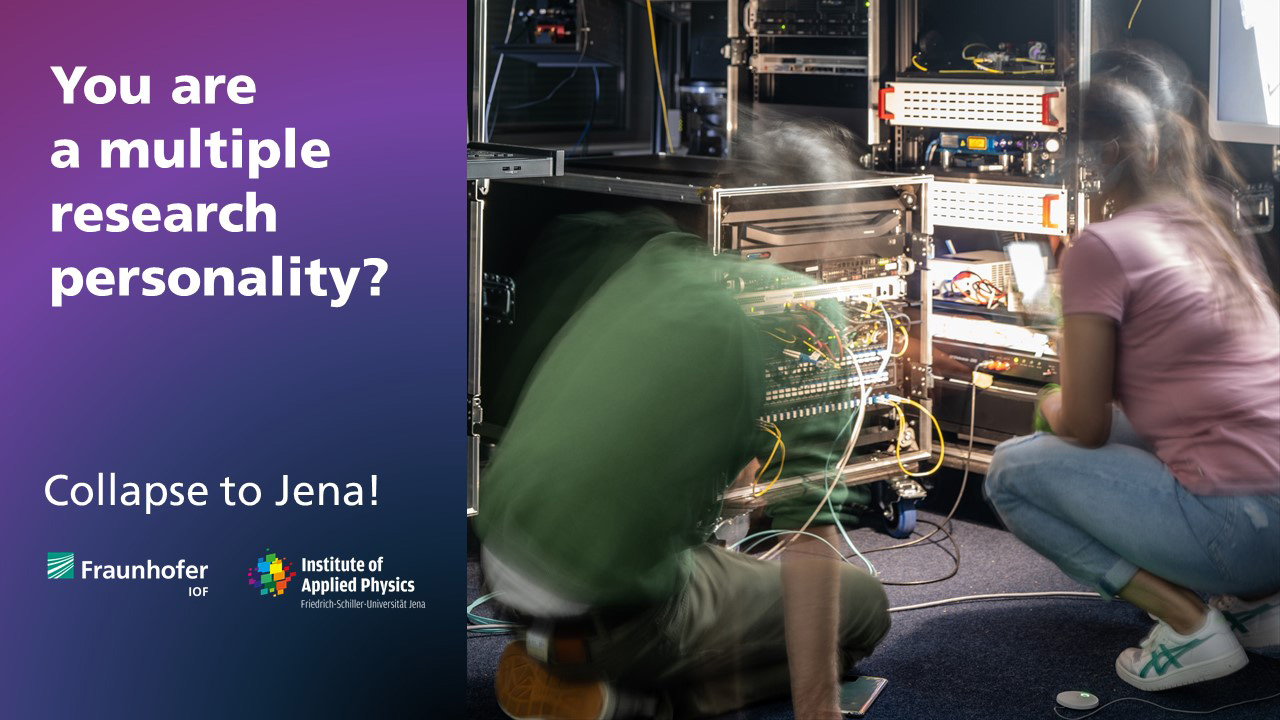
The Federal Ministry oder Education and Research in Germany provides information about research institutions, funding and career opportunities, and interesting research areas in Germany. The content addresses those interested in learning more about basic or applied research in Germany or those interested in an academic career or a position at a non-university research institution.
The German Exchange Academic Service provides information and tips about studying and researching in Germany. Find out more about finding scholarships, the first steps in Germany, doing a PhD in Germany, and much more.
Excellent scientists require excellent opportunities! The Center of Excellence in Photonics (CEP) is committed to not only recruit outstanding scientists for cutting-edge research, but also to help develop these outstanding personalities into renown worldwide experts in their respective fields and to form excellent leaders.
Therefore, on the one hand, the Center of Excellence in Photonics (CEP) and its partners provide a modern scientific infrastructure in the field of photonics and quantum technologies in order to enable the generation of excellent scientific performance and results. On the other hand, the CEP has set itself the task of equipping young scientists with a broad range of skills that will enable them to master not only the scientific but also the leadership challenges in a global and pluralistic scientific and, potentially in the future, industrial environment.
There are several different renown development programs/calls, which are already successfully utilized in the environment of the CEP. Three of these programmes will be introduced in the following and might be, for example, potential options for your engagement in quantum technologies at CEP in Jena.
Germany's raw material for innovation is the know-how needed to translate ideas and research results into commercial use. Education and qualification of young scientists are the building blocks for our future. This is especially true for a research- and knowledge-intensive field such as quantum technologies.
The Federal Ministry of Education and Research (BMBF) publishes calls to fund projects on quantum technologies in junior research groups at irregular intervals. These funding initiatives aim to establish sustainable research structures for young researchers. Excellent young minds are to be given the opportunity to stimulate the transition of basic research findings into novel applications in industry. At the same time, young academics will be offered the best possible starting and general conditions for successful scientific work. This gives excellent young scientists the opportunity to set up their own independent junior research group at a research institution in Germany and to take up new interdisciplinary research approaches in quantum technologies. In doing so, they should qualify for management tasks in industry or research through their research work, the management of the junior research group and the guidance of scientific personnel or by founding a company. Several junior research groups have already been funded and some of these groups are currently being made permanent through the appointment of professorships.
Typically, a close cooperation with existing research groups of the applicant institution in particular, but also with other research institutions and experienced scientists, are explicitly desired. This will promote the development of further in-house expertise and intensive networking with the scientific community, as well as creating synergy effects through the joint use of existing equipment and facilities. In addition, joint conferences and workshops are planned to strengthen the networking of the new working groups with each other and with the relevant areas of the scientific community.
In the context of quantum technologies, there are currently two active research groups at the Center of Excellence of Photonics:
You might get a chance to establish your own junior research group, if you are an excellent scientist in a relevant field of quantum technologies and would like to join our Center of Excellence in Photonics.
The Emmy-Noether-Program is funded by the German Research Foundation (Deutsche Forschungsgemeinschaft - DFG) and aims to give early career researchers an outstanding opportunity to qualify for professorship at a university.
The Emmy-Noether-Program is open to postdocs and junior professors with fixed-term contracts who are at an early stage in their research careers and enables them to establish and lead an independent junior research group for a period of six years.
This program particularly aims to offer an alternative to a “habilitation”, which is traditionally required to be eligible for professorship at German universities. By giving early career researchers the opportunity to establish and lead their own independent junior research group at a university or research institution in Germany, a set of similar and equivalent qualifications shall be achieved (assuming that the junior researchers are also given the opportunity to carry out an appropriate amount of relevant teaching duties). In addition, the DFG specifically encourages female researchers to apply for the program and aims to attract excellent early career researchers, who are currently working abroad.
Currently there are two active Emmy-Noether research groups at the Center of Excellence of Photonics.
The research funding program Fraunhofer Attract offers outstanding scientists the opportunity to develop their ideas in a close-to-market environment oriented towards practical application at the interface between industry and science.
The Attract program of Fraunhofer-Gesellschaft enables outstanding scientists to achieve some main objectives in an application-relevant research environment:
